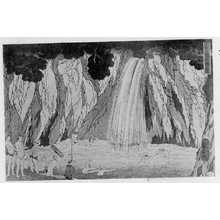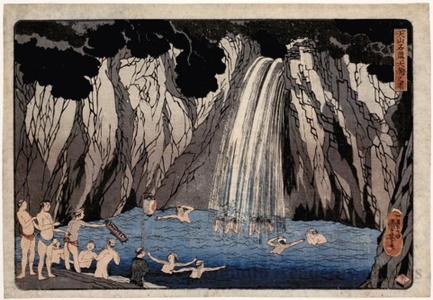Estampe japonaise "Great Falls of Sekison at Öyama" par Utagawa Kuniyoshi
Artiste :Utagawa Kuniyoshi
Titre :Great Falls of Sekison at Öyama
Date :c. 1839
Détails :Plus d'informations...
Source :Honolulu Museum of Art
Parcourir toutes les 5 476 estampes...
Description :
These partially clad firemen enjoy a dip at the Sekison waterfalls. Three of them (one on the side of the falls and two in the water) display single color tattoos across their backs and arms. While most of "polite society" in 19th-century Japan associated tattoos with the common man (such as carpenters or firemen), much of 20th-century Japan regarded tattoos as sinister symbols, worn by shadowy figures of the underworld. Although perhaps used in the earliest Japanese culture of the Ainu people, by the 18th century tattoos had been linked to the practice of marking criminals, thus their negative image. Firemen and carpenter guilds, however, regarded tattooing as a sign of manhood and used them to emulate legendary or historical heroes made famous in Kabuki theater. (2005)
Estampes Similaires

